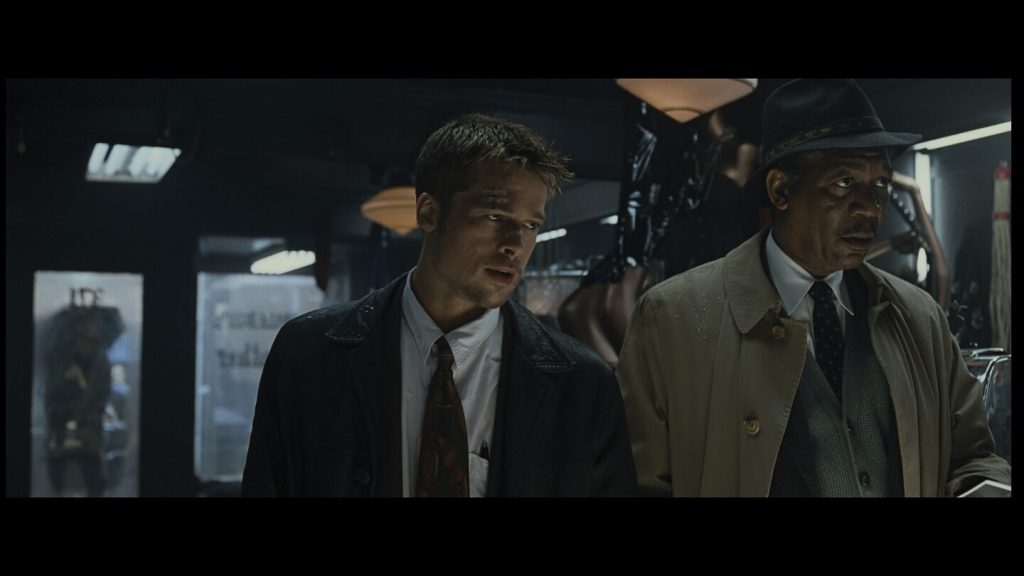David Fincher, the renowned filmmaker behind movies like “Fight Club” and “Gone Girl,” recently discussed the process of restoring his iconic film “Seven” for its 30th anniversary re-release. Fincher described the experience of seeing the film in 4K resolution as harrowing, noting that some aspects of the film did not hold up well in high-definition. In an effort to revive the movie, Fincher and his team embarked on a meticulous restoration process, using an 8K scan to derive the 4K version. The newly restored “Seven” will be shown on IMAX screens for the first time in the U.S. and Canada, with a 4K UHD home video version scheduled for release on Jan. 7.
“Seven,” a dark crime thriller starring Brad Pitt and Morgan Freeman as detectives on the trail of a serial killer, was a significant turning point in Fincher’s career. Following the disappointment of his directorial debut “Alien 3,” Fincher found success with “Seven,” which was made on a relatively modest budget but went on to become a box office hit, grossing over $327 million. The film’s impact on the genre and its lasting legacy have solidified its place in cinematic history. Fincher’s commitment to preserving the film’s integrity led him to oversee several restorations over the years, with the latest one being the final version.
Despite the advancements in technology and the enhanced viewing experience that comes with 4K resolution, Fincher was careful not to detract from the original content of “Seven.” He emphasized the importance of maintaining the film’s authenticity and avoiding unnecessary changes or additions to the story. However, he did make subtle adjustments to improve certain visual elements, such as the opening scene where Pitt’s character selects a tie. By adding a cityscape and rain drizzle to enhance the depth and atmosphere of the scene, Fincher aimed to enhance the viewer’s experience without altering the film’s essence.
Throughout the restoration process, Fincher addressed various technical issues and imperfections present in the original print of the film. From exposure problems to camera jiggles, he made strategic edits to enhance the overall quality while preserving the film’s raw and gritty aesthetic. Fincher’s attention to detail and commitment to maintaining the film’s original look and feel speak to his dedication as a filmmaker. Despite the challenges of revisiting past work, Fincher’s passion for storytelling and visual storytelling shines through in the restored version of “Seven.”
As “Seven” celebrates its 30th anniversary with a renewed sense of vitality and visual clarity, audiences have the opportunity to experience the film in a way that honors its legacy while embracing the advancements in technology. Fincher’s restoration of the film serves as a testament to his commitment to his craft and the enduring power of storytelling. With the film set to debut on IMAX screens and in 4K UHD format, viewers can immerse themselves in the dark and immersive world of “Seven” like never before. The legacy of “Seven” continues to captivate audiences and inspire filmmakers, showcasing the timeless appeal of Fincher’s masterful storytelling.















